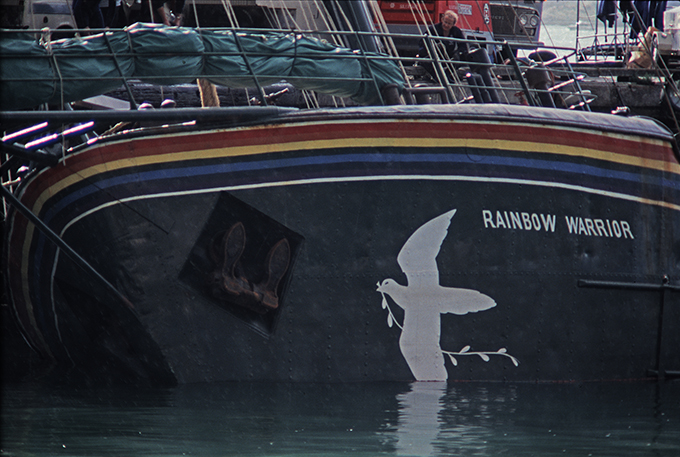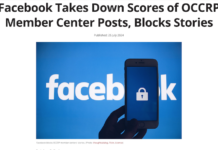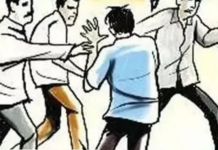Flashback: Tagata Pasifika’s John Pulu talks to Oscar Temaru in 2016.
By David Robie
One of the champions of the South Pacific’s nuclear-free and independence campaigners, Oscar Manutahi Temaru, is expected to make a guest appearance tomorrow in a retrospective webinar about the impact of the Rainbow Warrior bombing 35 years on.
The webinar, titled “The Rainbow Warrior Incident: 35 Years On”, features several protagonists, analysts and authors speaking about the sabotage of the Greenpeace flagship by French secret agents in Auckland harbour on 10 July 1985.
Temaru, five times president of “French” Polynesia and the anti-nuclear mayor of Faa’a, the airport city on the fringe of the capital of Pape’ete, is likely to make some challenging comments.
READ MORE: French nuclear tests ‘showered vast area of Polynesia with radioactivity’
Four years ago, he told Tagata Pasifika’s John Pulu that a half-century legacy of nuclear tests in Polynesia was to blame for the at times toxic relationship with the coloniser.
“The French government, through its President, General De Gaulle decided to use our country for the French nuclear testing,” Temaru said.
“They came down here with their private enterprises – the French army – and they have dismantled the whole life of this country. They pulled it upside down.”
Temaru knew what to expect, as during the Algerian War of Independence he was in the French navy and he was deployed to the conflict at a time when France was conducting its early nuclear tests in the Sahara Desert.
Early years of devastation
Temaru was later a customs officer in Tahiti and saw at first hand the early years of the devastation of the military machine in Moruroa and Fangataufa atolls in the southern Gambier islands as they became the new host for French nuclear tests.
France conducted 193 nuclear tests – 46 in the atmosphere – in the 30 years between 1966 and 1996, but the legacy of the testing was still felt for 50 years with the medical and environmental consequences and lawsuits continuing to this day.
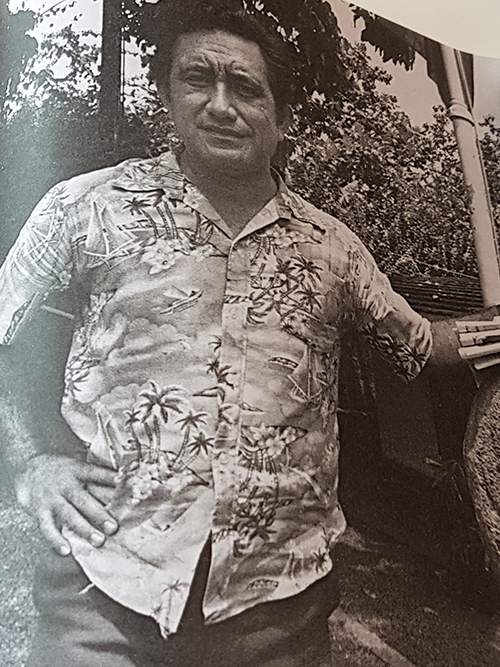
Temaru’s rallying cry has been to seek independence from France.
With a Cook Islands mother and Tahitian father and having worked on school holidays in freezing works in Auckland, he has long had a strong affinity with the “independent” nations of the Pacific and aspires to Tahiti one day becoming a full member of the Pacific Islands Forum.
Thanks to strong support of several Pacific nations and the Non-Aligned Movement, the UN General Assembly voted on 17 May 2013 to put the country back on the UN list of non-self-governing territories.
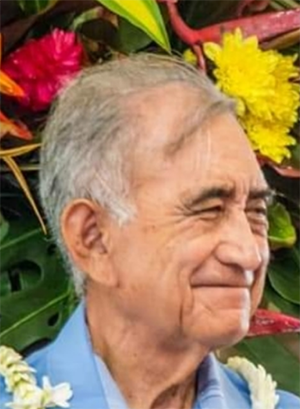
Since then he has been a marked man for vindictive elements in the French establishment who see it is payback time.
Last month, he was on a hunger strike over his treatment by the French judiciary. A prosecutor has seized his personal savings of US$100,000, in an act described as illegal by his defence lawyers, in a case which he is being accused of political “undue influence”.
‘Scandalous’ legal action
One of the two Tahitian politicians in the National Assembly in Paris, Moetai Brotherson, branded the action as “scandalous”, claiming prosecutor Herve Leroy had exceeded his powers.
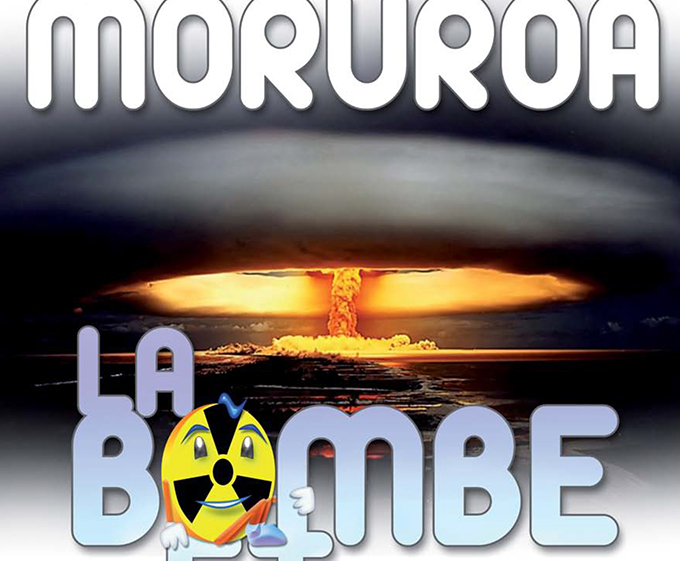
The judicial controversy is over the local pro-independence station Radio Tefana which the prosecution claim is benefitting his pro-independence party Tavini Huiraata (People’s Servant Party), founded in 1977.
“As a Mangarevian, I see Oscar Temaru as our only voice for indigenous sovereignty and it starts – as he has said so many times – by making the French accountable for what they have done,” says Ena Manuireva, an Auckland-based Tahitian researcher studying the loss of cultural identity among his Mangarevan community, its origin and impact.
“Temaru has has always fought the same fight – we, the local population, must be the masters of our own destiny. The French coloniser needs to leave if they don’t want to give us independence.”
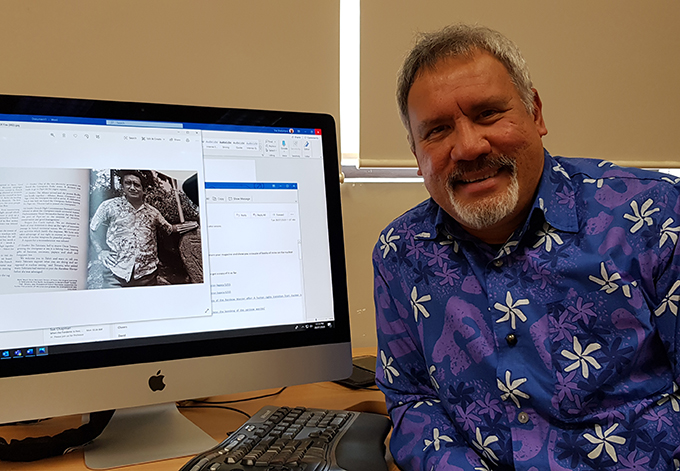
Manuireva is one of the speakers at the webinar tomorrow, hosted by Canada’s Simon Fraser University of Vancouver with support by Massey University and the University of Auckland is part of a “France and Beyond” joint conference of the Society for French Historical Studies and George Rudé seminar on French history and civilisation.
A doctoral candidate at Auckland University of Technology (AUT), Manuireva was born in Mangareva (Gambier), the smallest archipelago in Ma’ohi Nui (French Polynesia) in 1967. He left the island after the first nuclear test on July 2, 1966.
Nuclear panel speakers
Moderator is Dr Roxanne Panchasi, an associate professor at Simon Fraser University who specialises in 20th and 21st century France and its empire. She is the author of Future Tense: The Culture of Anticipation in France between the Wars and her recent research has focused on French nuclear weapons and testing since 1945.
Also featured on the panel are:
Stephanie Mills, who is currently director of campaigns at NZEI Te Riu Roa, New Zealand’s largest education union. She worked in the 1990s as Greenpeace’s Pacific nuclear test ban campaigner until France declared an end to testing in 1995.
Dr Rebecca Priestley is associate professor at the Centre for Science in Society at Victoria University in Wellington. She is the author of several publications on science communication with an emphasis on climate change and is the author of Mad on Radium: New Zealand in the Atomic Age.
Dr David Robie is professor of Pacific journalism and communication studies and director of the Pacific Media Centre-Te Amokura at AUT. As a journalist, he has reported on post-colonial coups, indigenous struggles for independence and environmental issues.
He was on board the campaign ship in the weeks leading up to the bombing and has written several Pacific books, including Eyes of Fire: The Last Voyage of the Rainbow Warrior.
• More information about the webinar, 9am on Thursday, July 30, on Zoom.
